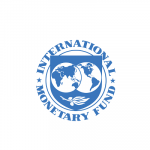Islamabad: Pakistan is preparing two financing plans to secure around USD 750 million (approximately PKR 213 billion) in inflows over the coming weeks, including the launch of its first Panda Bond and fresh commercial borrowing from international banks.
According to official sources, the government is considering raising USD 300–500 million through a consortium of international lenders, including Deutsche Bank and Standard Chartered Bank. The move comes as Islamabad faces a USD 500 million Eurobond repayment due on September 30, 2025.
Read: Pakistan launches 1st-ever 15-year zero-coupon bond
In addition, Pakistan plans to issue its inaugural Panda Bond in November, aiming to raise USD 250 million in the first installment from the Chinese market. Finance Minister Muhammad Aurangzeb confirmed that preparations for the bond are underway, with the inaugural issuance to be finalized soon.
The bond, denominated in Chinese Renminbi (RMB), will diversify Pakistan’s funding sources and provide access to China’s capital markets for the first time. Structured with a fixed-rate coupon and a three-year maturity, the issuance will be privately placed on China’s Interbank Bond Market and offered to qualified institutional investors.
To make the issuance possible, the Asian Development Bank (ADB) and Asian Infrastructure Investment Bank (AIIB) will provide credit enhancement guarantees covering up to 95% of the principal and accrued interest, capped at USD 285 million. ADB will guarantee up to USD 160 million, while AIIB will cover USD 125 million. These guarantees are required due to Pakistan’s sub-investment-grade credit rating, enabling the bond to secure a domestic AAA rating in China.
The issuance is being coordinated with financial advisors and underwriters, including China International Capital Corporation and Habib Bank Limited. Final regulatory approvals in both Pakistan and China are expected before the targeted November 2025 launch.
Read: Pakistan issues Green Bond for climate-friendly investments
Meanwhile, Pakistan’s repayment schedule includes another USD 1 billion Eurobond maturing in April 2026, prompting authorities and the State Bank of Pakistan (SBP) to explore financing options that will ease pressure on foreign exchange reserves.
The financing initiatives come as the International Monetary Fund (IMF) review mission visits Karachi this week. The IMF team is scheduled to meet with SBP officials, the Overseas Investors Chamber of Commerce & Industry (OICCI), and Pakistan Business Council (PBC) representatives.
Officials say the combined strategy of commercial borrowing and Panda Bond issuance will help the government bridge financing gaps while diversifying its investor base and reducing reliance on traditional lenders.







